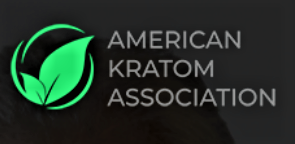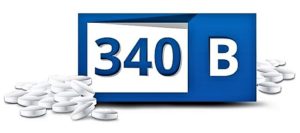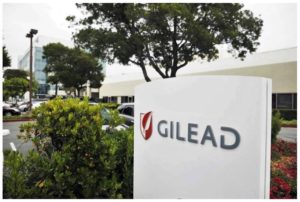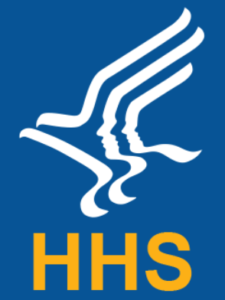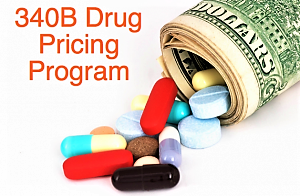- DEA’s proposed telehealth rules pull back COVID-era remote prescribing flexibilities (fiercehealthcare.com)
Telehealth providers and advocates are balking at proposed telemedicine rules released by the Drug Enforcement Administration...If made permanent, the rules would be a marked change from the suspension of the Ryan Haight Online Pharmacy Consumer Protection Act, which propelled a telepsychiatry boom during the COVID-19 pandemic...Under the proposed rule released by the DEA...some medications would require an in-person doctor’s visit. Controlled substances including stimulants like Adderall and opioids such as oxycodone and buprenorphine used to treat opioid use disorder would require at least one in-person visit...READ MORE
- Drug payment cuts to 340B hospitals spur debate on best path forward (healthcarefinancenews.com)
Hospitals say revenue from the 340B program is essential, while others contend the original law is being abused...an federal appeals court ruled that 340B hospitals will now be subject to Medicare cuts in outpatient drug payments by nearly 30%... gives...the Department of Health and Human Services the legal authority to reduce payment for Medicare Part B drugs to 340B hospitals...the action means patients – particularly those who live in vulnerable areas – will pay less out-of-pocket for drugs in the Medicare Part B program...providers...said the 340B decision will hurt hospitals and patients in these vulnerable areas...Hospitals that serve large numbers of Medicaid, Medicare and uninsured patients were getting the drugs for a discounted price, but, getting reimbursed at the higher price...The hospitals...are in the red or operating on thin margins, were using the pay gap in the price difference to cover operational expenses. HHS deemed it inappropriate that these facilities would use Medicare to subsidize other activities and initiatives...READ MORE
- Dozens of doctors in 5 states charged with illegally dispensing 32 million painkillers, sometimes for sex (cnbc.com)
The people charged across 11 federal districts, include 31 doctors, seven pharmacists, eight nurse practitioners, and seven other licensed medical professionals...The cases involve more than 350,000 prescriptions for controlled substances across Ohio, Kentucky, Tennessee, Alabama, and West Virginia...The Justice Department said six individuals, including two doctors and three registered pharmacists were charged with several counts, including unlawful distribution of controlled substances and conspiracy to obtain controlled substances by fraud...One arrest...involved a doctor in Kentucky who allegedly prescribed opioids to friends on Facebook, who would then come to his home to pick up prescriptions...Another case involved a doctor in Tennessee who branded himself the “Rock Doc.” He allegedly prescribed combinations of dangerous combinations of opioids and benzodiazepines, a class of psychoactive drugs, sometimes in exchange for sexual favors...READ MORE
- HHS recommended that the DEA make kratom a Schedule I drug, like LSD or heroin (statnews.com)
The Department of Health and Human Services has recommended a ban on the chemicals in kratom that would make the popular herbal supplement as illegal as heroin or LSD…HHS asserted in a letter to the Drug Enforcement Administration that two chemicals in kratom should be classified as Schedule I substances... FDA...has said that kratom is “an opioid” and has been “associated” with dozens of deaths...Kratom should not be used to treat medical conditions, nor should it be used as an alternative to prescription opioids...Some states have already banned kratom, but it’s currently legal at the federal level. It’s sold in different forms, including dry powder and capsules. According to the American Kratom Association, millions of Americans use the substance.
- Federal judge rules HHS’ efforts to punish pharma over 340B restrictions ‘arbitrary and capricious’ (fiercehealthcare.com)
The pharmaceutical industry scored a muted win in its long-running feud with the Department of Health and Human Services over 340B program discounts...when a federal court judge granted Eli Lilly’s bid to vacate two administrative actions aimed at drugmakers...U.S. District Court...ruled that a...advisory opinion from HHS’ Office of the General Counsel and a May enforcement letter from the Health Resources and Services Administration were “arbitrary and capricious” and in violation of the Administrative Procedures Act...the judge determined that Lilly and other drug manufacturers are not permitted under the current 340B statute “to impose unilateral extra-statutory restrictions on its offer to sell 340B drugs to covered entities utilizing multiple contract pharmacy arrangements.”...READ MORE
- HHS sues Gilead for refusing to reach a licensing deal over patents for HIV prevention pills (statnews.com)
After more than a year of controversy, the federal government filed a lawsuit accusing Gilead Sciences of infringing patents on a pair of HIV prevention pills and unfairly reaping hundreds of millions of dollars from research funded by taxpayers...The patents are held by the Centers for Disease Control and Prevention, which helped fund academic research into HIV prevention that later formed the basis for a pair of pills — Truvada and Descovy — that are sold by the drug maker. The Department of Health and Human Services contended that Gilead refused to reach a licensing agreement despite “multiple attempts” at reaching a deal. “Gilead’s conduct was malicious, wanton, deliberate, consciously wrongful, flagrant, and in bad faith,” the suit states...READ MORE
- HHS’s Multi-Pronged Approach To Lower Drug Prices: Will It Work? (forbes.com)
...the Department of Health and Human Services has put forward a series of initiatives aimed at lowering prescription drug prices, Medicare expenditures, and patient cost-sharing. The proposals run the gamut from increasing transparency of net pricing, to allowing the use of certain formulary management tools previously off limits to Medicare plans, to direct price controls...But, will they work? The federal government appears to think so. Several weeks ago, Secretary of HHS Alex Azar stated that "the models being announced create new incentives for plans, patients, and providers to choose drugs with lower list prices...[advancing] our priority of using HHS programs to build a value-driven healthcare system."...it's debatable whether HHS will achieve the twin objectives of lower drug spending and decreased patient cost-sharing as a consequence of implementing its series of initiatives. Some may not get implemented as planned, or not at all given the opposition they evoke. Others may result in tempering the growth in drug costs overall, but raising the amount patients must spend out-of-pocket, whether on premiums or patient cost-sharing...
- Pharmacy, PBM Groups React to Drug Price Transparency Rule (drugtopics.com)
The Department of Health and Human Services recently released a final rule requiring health insurers to disclose drug pricing and cost-sharing information...“Under this final rule, more than 200 million Americans with private-sector insurance (both individual-market and employer-based) will have access to a list of real-time price information, including cost-sharing, enabling them to know how much care will cost them before going in for treatment,”...“We want every American to be able to work with their doctor to decide on the healthcare that makes sense for them, and those conversations can’t take place in a shadowy system where prices are hidden,” said HHS Secretary Alex Azar, MD,. “With more than 70% of the most costly healthcare services being shoppable, Americans will have vastly more control over their care...Although the Pharmaceutical Care Management Association is still reviewing the final rule, “we would warn regulators to guard against giving away competitive pricing information to drug manufacturers and pharmacies,”...READ MORE
- Trump’s Drug Importation Policy Is Folly, Just Ask Canadians (forbes.com)Canadian Pharmacists Association renews call for federal government to protect drug supply in light of U.S. drug importation developments (pharmacists.ca)CPhA Drug Shortages and Recalls Surveys 2018 (pharmacists.ca)
The Trump Administration's Department of Health and Human Services has officially proposed legalizing the importation of drugs from Canada...Canadians’ reactions provide an important perspective demonstrating why drug importation will harm the U.S...Despite assurances from Prime Minister Justin Trudeau, Canadians are worried that the U.S. proposal will impose severe costs on Canadians. Their concerns are well founded. Typical of their reaction, the Canadian Pharmacists Association has noted that...the Canadian medicine supply is not equipped to support both Canadian and U.S. consumers, and will make existing drug shortages in Canada even worse, disrupting patients’ access to their medications. Drug shortages have ‘greatly increased’ in the last 3-5 years according to a newly released survey of Canadian pharmacists...READ MORE
- Judge blocks Trump administration cuts to 340B hospital drug-discount program (statnews.com)
A federal judge has blocked a Trump administration policy that reduces payments to hospitals under a drug discount program, ruling...that the government overstepped its authority in an attempt to address the high cost of prescription medications...The decision is a win for the 2,000-plus hospitals participating in the program, known as 340B, most of which serve large numbers of low-income patients...In 2017, the Department of Health and Human Services reduced its reimbursements for some drugs by about 28 percentage points...




